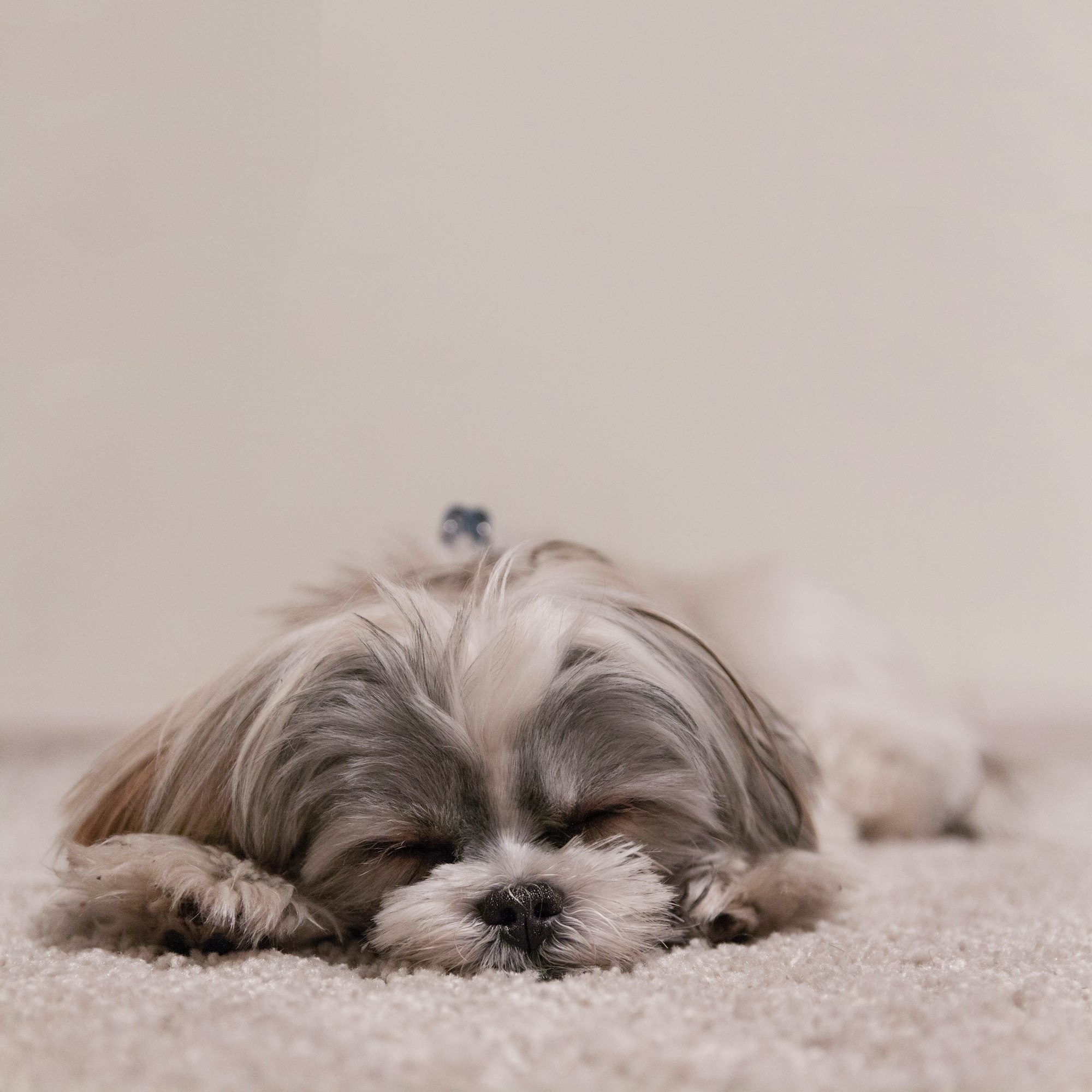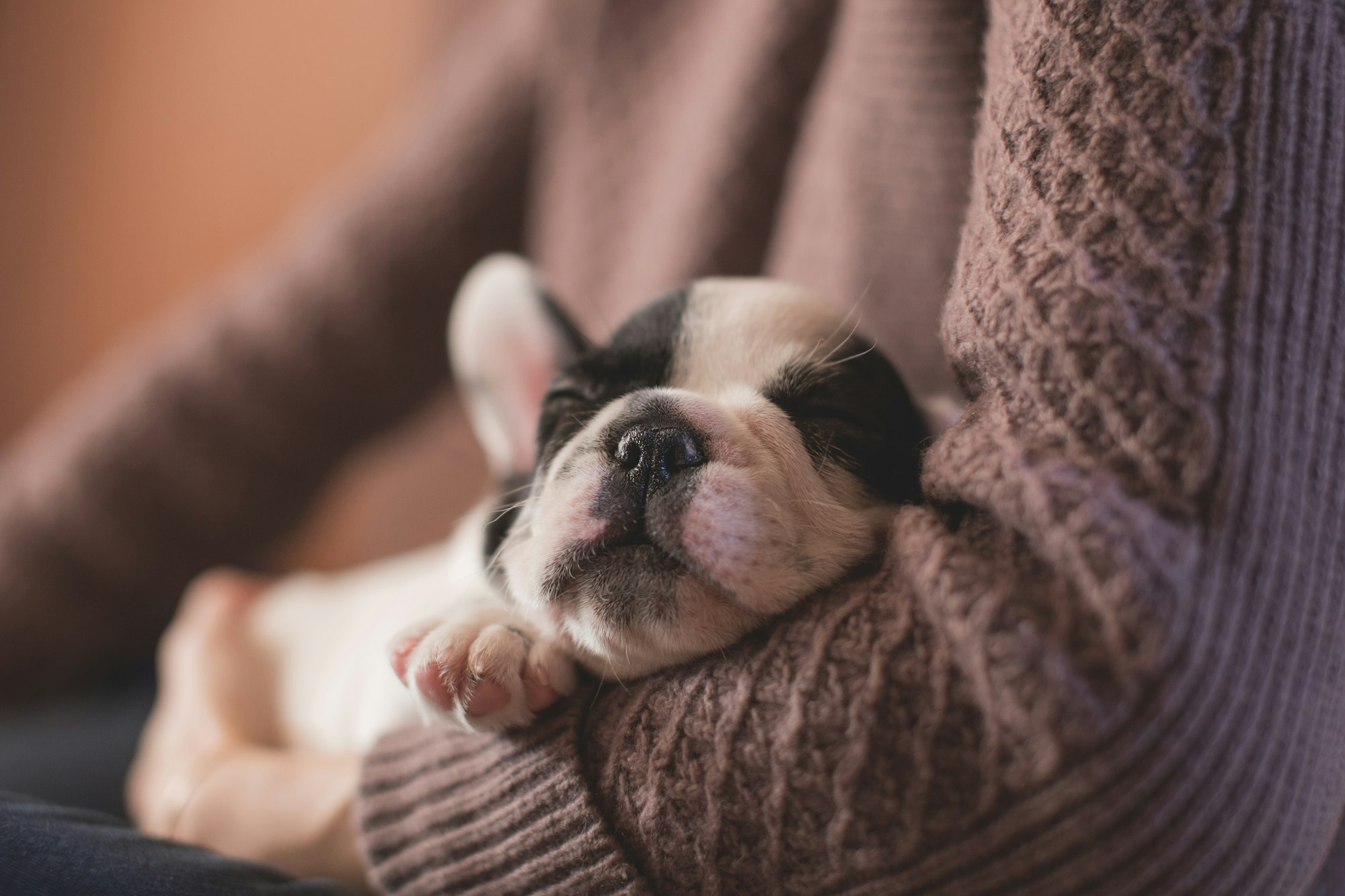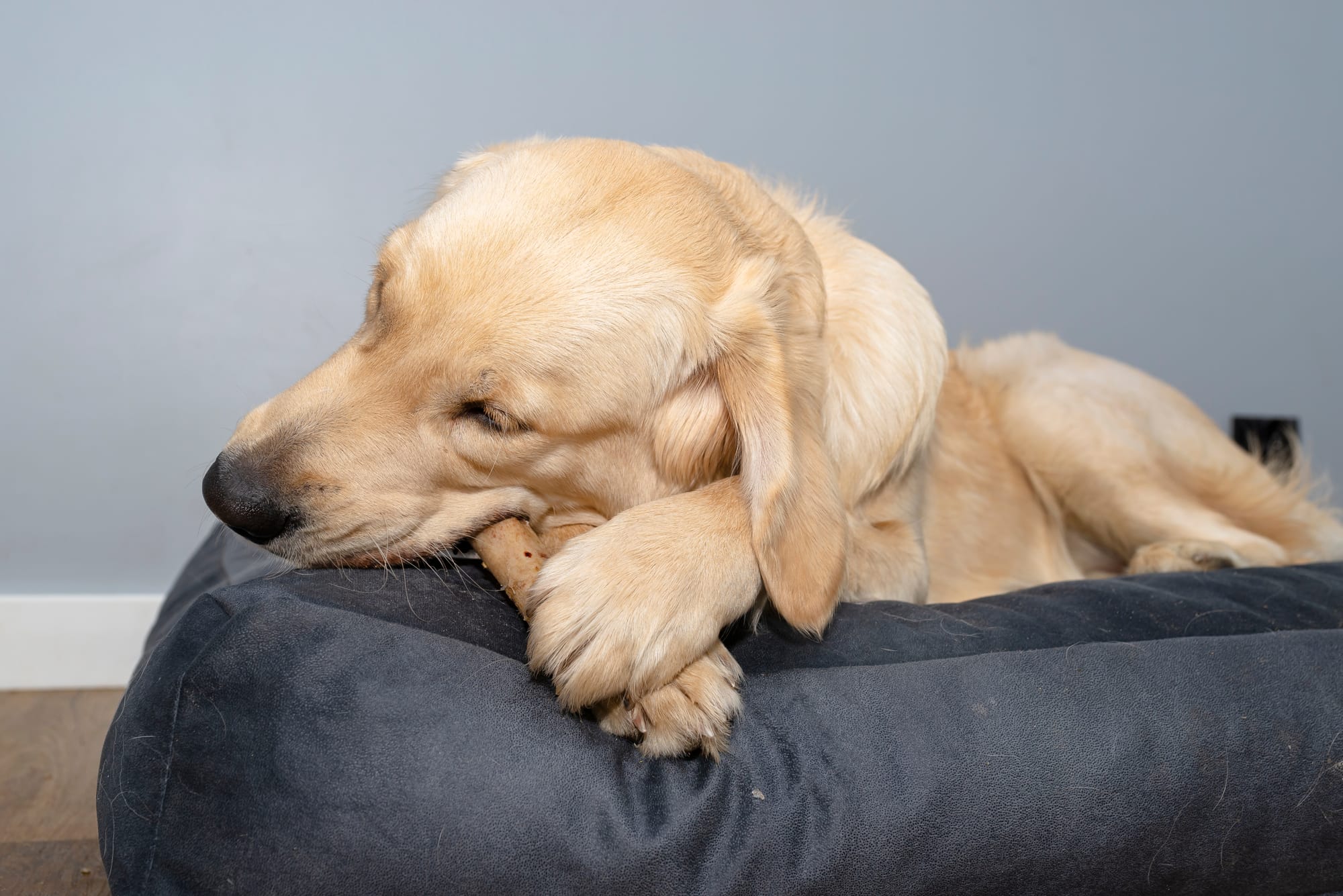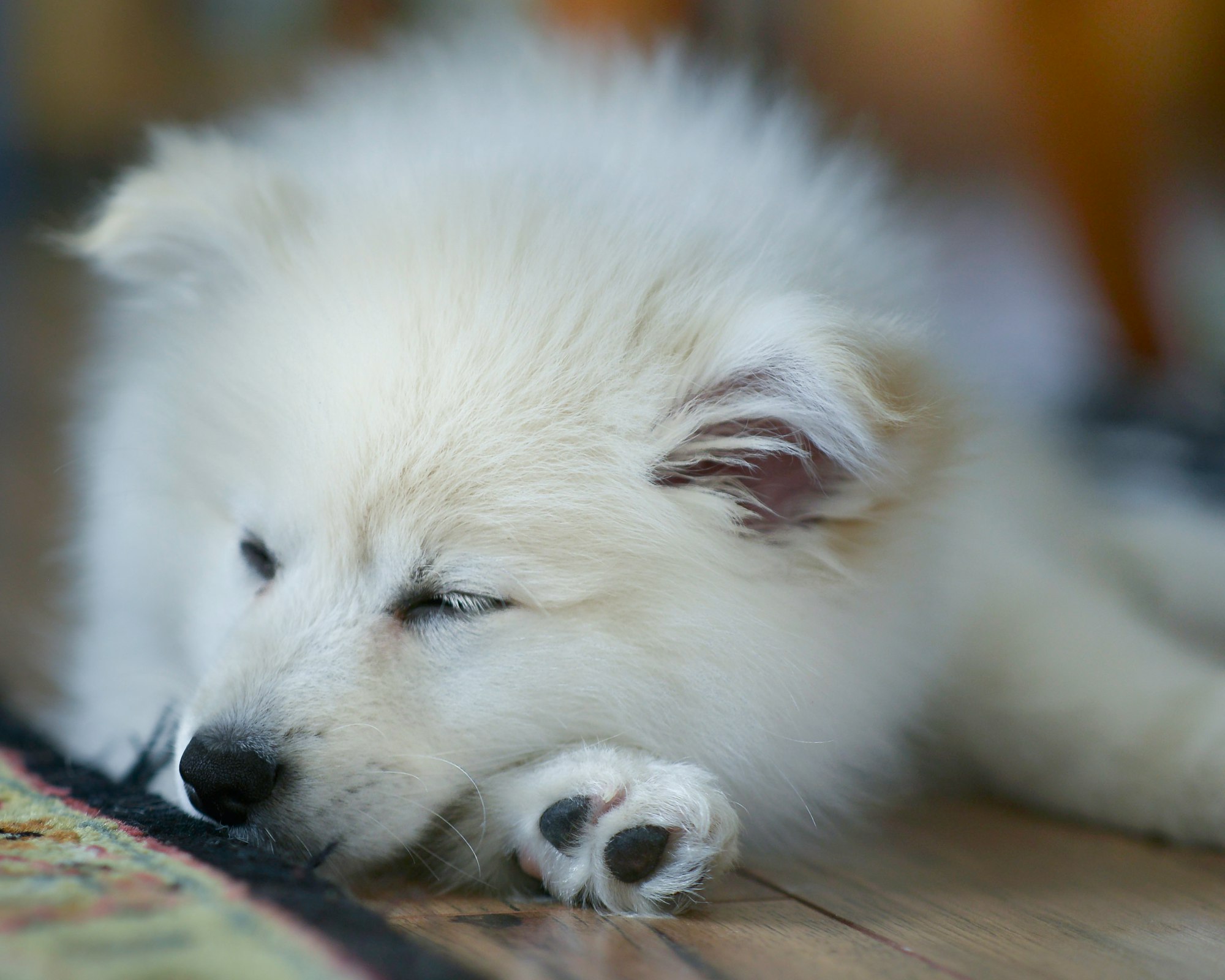Puppies. They're small, adorable, full of energy, and they seem to sleep all the time. But just how much sleep does a puppy need? In the heart of this question lies a fascinating journey into understanding puppy sleep patterns, development, and health.
How Much Should a Puppy Sleep?
Contrary to popular belief, puppies need a lot more sleep than adult dogs. Generally, a puppy may sleep anywhere between 18 to 20 hours per day. Yes, you heard it right, nearly a full day! But don't be alarmed, this is perfectly normal.
Sleep Needs of Puppies
Why do puppies sleep so much, you might ask? Well, sleep is an essential part of a puppy's growth and development process. During sleep, puppies are going through rapid growth spurts. The deep sleep phase is when their bodies produce the most growth hormones.
Puppy Sleep Schedule
Interestingly, puppies won't sleep for long uninterrupted periods like humans do. Instead, they'll cycle between periods of activity and sleep throughout the day and night. This can sometimes lead to situations where your furry little friend is full of energy when you're trying to get some shut-eye.
Now, here's an interesting real-life example. Just last week, my neighbor asked, "Why does my dog sleep under my bed?" This behavior can be attributed to the puppy's instinctual need to find a safe, quiet, and comfortable spot to rest. Understanding and adjusting to a puppy's sleep schedule will certainly take a little time and patience.
Sleep Training for Puppies
Establishing a puppy sleep routine can be quite beneficial. A consistent sleep schedule helps a puppy feel secure and helps their bodies adapt to a rhythm. Remember, a well-rested puppy is a happy dog.
Puppy Sleep Stages and Cycles
Just like humans, puppies also go through various sleep stages. These stages include light sleep, deep sleep, and the REM (rapid eye movement) stage where most dreams occur. You might sometimes notice your puppy twitching while sleeping. This is typically a sign that they're in the REM stage of sleep, dreaming about chasing that squirrel in the park.
Common Puppy Sleep Issues and Their Solutions
One common issue that new puppy owners often face is insomnia or restlessness in puppies. If your puppy is finding it hard to settle down, you may need to consider possible underlying causes such as hunger, needing to go to the toilet, or even separation anxiety.
On the other hand, puppies can also sleep too much. While this might seem strange, remember that just like babies, puppies are growing rapidly, and sleep is a vital part of this process.
Can Puppies Sleep Too Much?
Well, it's worth noting that while puppies do need a lot of sleep, excessive sleep can also indicate health issues. If your puppy seems lethargic rather than simply sleepy, it may be best to consult a vet.
The Weird and Wonderful World of Puppy Sleep
Ever noticed your dog sleeping with their tongue out, or perhaps even on their backs? These quirky behaviors can often be attributed to their comfort level, temperature, and sometimes breed characteristics. It's all part of the fun and wonder of understanding puppy sleep!
As a closing note, remember that every puppy is unique and may have different sleep needs. So, while it's helpful to understand the norms, always be sure to pay attention to your own pup's behaviors and signals. By doing so, you'll ensure they're getting the rest they need to grow into a healthy, happy adult dog.
And always remember, a well-rested puppy is a happy dog. In understanding and respecting their sleep needs, you're setting the stage for a lifetime of good health and wellbeing for your furry friend.
The Importance of Sleep for Puppies
Now, you may wonder why we're stressing so much on puppy sleep. Sleep isn't just a resting period for puppies; it's a crucial component of their cognitive and physical development. Puppies learn a lot from their environment, and sleep helps consolidate this learning into long-term memories.
How to Create an Ideal Sleep Environment for Your Puppy
Setting up the perfect sleep environment is a key step in ensuring your puppy gets enough quality sleep. Puppies tend to prefer a quiet, dark, and cool environment. A comfortable bed and a few favorite toys will help them feel secure. A consistent sleeping spot also helps to establish a routine, making bedtime a more peaceful process.
Decoding Puppy Sleep Behavior
Puppy sleep behavior can sometimes seem baffling. You might often ask, "Why is my dog twitching while sleeping?" or "Why do dogs sleep with their tongue out?" Most of these behaviors are normal and a part of the REM sleep stage. However, continuous, violent twitching or other unusual behavior should prompt a visit to the vet to rule out any potential health issues.
Signs of Sleep Deprivation in Puppies
Just like humans, puppies can also become sleep-deprived. Overstimulation, anxiety, or medical issues can lead to a puppy not getting enough sleep. Symptoms of sleep deprivation in puppies include increased aggressiveness, hyperactive behavior, and difficulties with learning and training. Remember, a puppy's sleep should be uninterrupted for their growth and development.
When to Consult a Vet
While most puppy sleep behavior is perfectly normal, there are times when you might need to consult with a professional. If your puppy is excessively lethargic, has difficulty breathing during sleep, or shows signs of distress, it's time to visit the vet.
In conclusion, understanding puppy sleep is essential to ensure your puppy grows into a healthy and happy adult dog. By paying attention to their sleep patterns and creating a supportive environment, you can set your furry friend up for a lifetime of good health and happiness.

Dealing with Puppy Sleep Problems
Puppies may experience several sleep issues as they grow. A common one is what we colloquially term as "nighttime crazies," where your puppy might be hyperactive at night and find it hard to settle. In such cases, try to create a soothing and calm environment for them. Play soft music, lower the lights, and avoid vigorous play to signal bedtime.
Changing Sleep Patterns as Puppies Grow
As your puppy grows, its sleep patterns will change. You'll notice them staying awake for longer periods during the day. An older puppy will sleep for around 12-14 hours a day, which is still more than the average adult dog. It's crucial to understand that this change is a part of their natural growth and development process.
Understanding and Respecting Your Puppy's Sleep Needs
Your puppy's sleep needs are crucial for their health and well-being. It's not just about how much sleep they get, but also about the quality of sleep. Ensuring they have a quiet, comfortable, and secure place to rest is crucial.
Training Your Puppy to Sleep Through the Night
Training a puppy to sleep through the night can be a challenging task, but with patience and consistency, it can be achieved. Puppies usually sleep through the night by the time they're about four months old. Until then, their little bladders might need them to go out for potty breaks at night. Gradually, they'll be able to hold on for longer and eventually sleep through.
Implementing a Sleep Routine with Fi Dog Collars
Training your puppy to sleep through the night can be a daunting task. But did you know that a tool like the Fi dog collar could make this easier?
What is a Fi Dog Collar?
Fi dog collars are the latest in smart technology for your pet. They're essentially activity trackers for dogs, helping you keep tabs on your pet's daily activity levels and location. But how does this connect to understanding puppy sleep and their needs?
Tracking Your Puppy's Sleep with a Fi Dog Collar
Fi dog collars allow you to monitor your pet's activity levels throughout the day. While they do not directly measure sleep, an analysis of your puppy's activity data can give you insights into their sleep patterns. For example, long periods of inactivity during the day might indicate that your puppy is sleeping.

Using Fi Dog Collar Data to Establish a Sleep Schedule
By observing your puppy's natural sleep patterns through the Fi dog collar data, you can begin to build a consistent sleep schedule. This routine will help your puppy feel secure and help their bodies adapt to a rhythm. Remember, a well-rested puppy is a happy dog, and a Fi dog collar can help achieve that.
Using Fi Collar's GPS Feature for Nighttime Peace of Mind
Now, you might be thinking, "why does my dog sleep under my bed?" Puppies sometimes choose to sleep in places that feel secure and quiet. The GPS feature in the Fi dog collar gives you peace of mind about your puppy's location, even when they choose a new favorite sleeping spot.

Ensuring Your Puppy's Safety with Fi Dog Collars
Fi dog collars don't just help with sleep schedules and tracking, they're also about safety. If your puppy is one to sleep with their tongue out or on their backs, the Fi collar can provide useful data to ensure these behaviors are just quirks and not signs of distress.
Q: How much sleep does a puppy typically need?
A: On average, puppies need between 18 to 20 hours of sleep per day. However, this can vary depending on the puppy's age, size, and breed.
Q: Why is my puppy so active at night?
A: Puppies have different sleep patterns than adult dogs and humans. They cycle between periods of activity and sleep throughout the day and night. However, with consistent training and routine, they can adapt to sleep more during the night.
Q: How can a Fi dog collar help me understand my puppy's sleep patterns?
A: While Fi dog collars do not directly measure sleep, they can provide data on your puppy's periods of activity and inactivity. You can use this data to infer when your puppy is likely sleeping and help establish a consistent sleep routine.
Q: What does it mean if my puppy is sleeping more than usual?
A: While puppies do need a lot of sleep, excessive sleep can sometimes indicate health issues. If your puppy seems more lethargic than usual or shows other signs of illness, it's best to consult a vet.
Q: Why does my puppy twitch in its sleep?
A: Twitching during sleep usually indicates that the puppy is in the REM (rapid eye movement) stage of sleep, which is when most dreaming occurs. However, continuous or violent twitching could be a sign of a health problem and should be checked by a vet.
Conclusion:
In conclusion, understanding puppy sleep patterns is crucial for their growth, health, and well-being. Puppies require significantly more sleep than adult dogs, with typical averages between 18 to 20 hours a day. Sleep is a vital part of a puppy's cognitive and physical development, and any disruptions can significantly impact their growth.
Creating a comfortable and secure sleep environment is essential for quality sleep. With tools like Fi dog collars, monitoring your puppy's sleep and activity patterns is more accessible than ever, aiding in creating a consistent sleep routine. Remember, unusual sleep behavior such as excessive lethargy or violent twitching warrants a visit to the vet.
It's vital to observe your puppy's natural behaviors and make necessary adjustments to ensure their comfort. Whether it's respecting their chosen sleep spot or understanding their quirky sleep positions, every step you take contributes to a well-rested, happy, and healthy dog.
Embrace this journey with patience and care, appreciating that every puppy is unique, and their sleep patterns will evolve as they grow. With this understanding, you're setting a solid foundation for your puppy's future health and happiness. Remember, a well-rested puppy is a happy dog!






